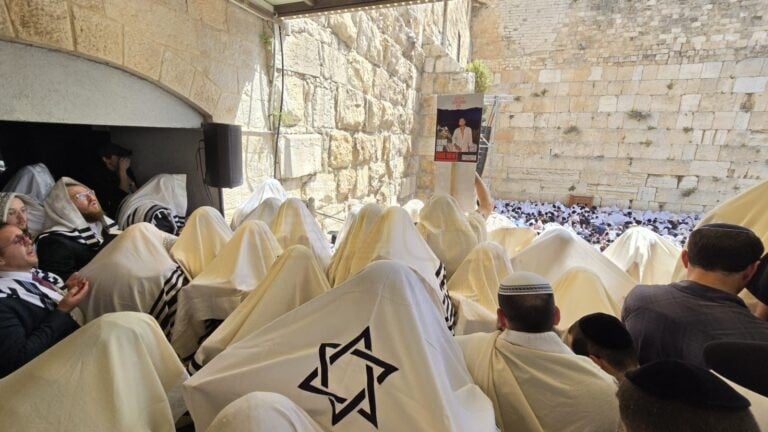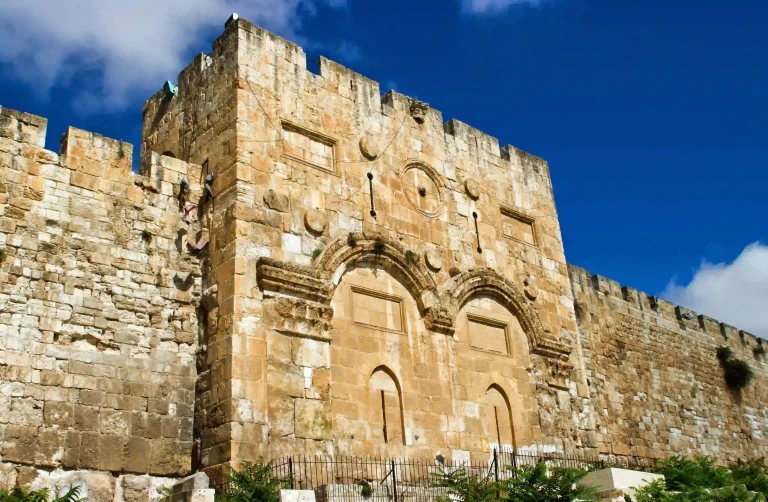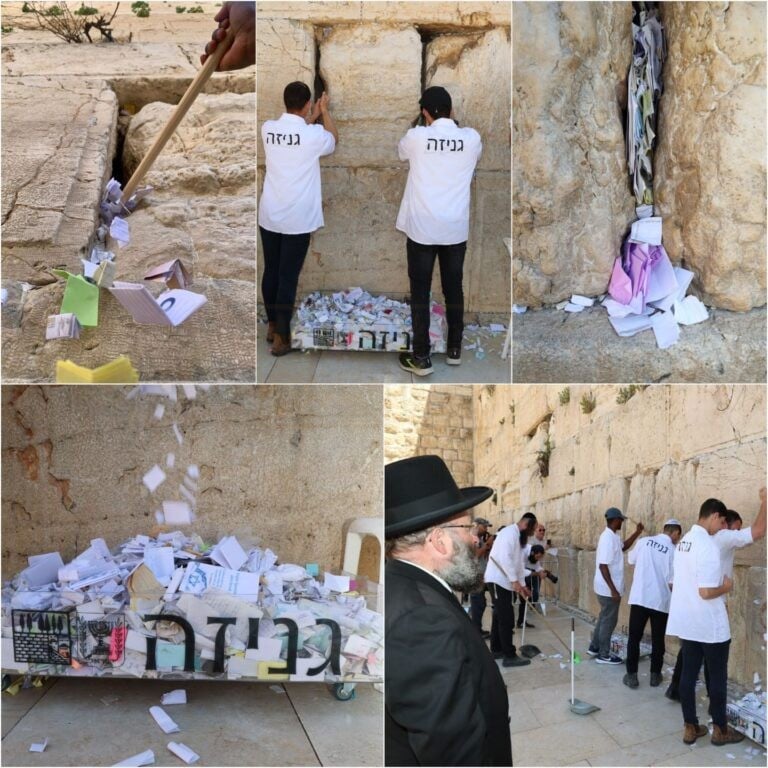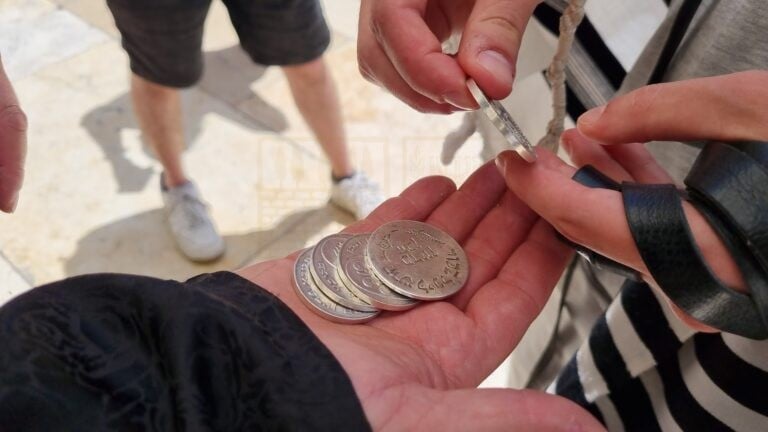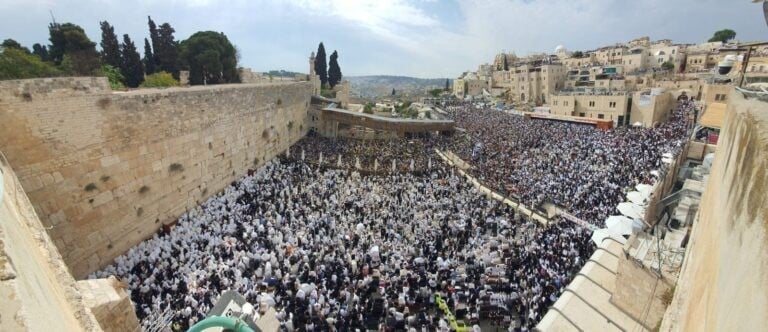|
Getting your Trinity Audio player ready...
|
Parashat Vayechi – 5784
Rabbi Shmuel Rabinowitz, Rabbi of the Western Wall and Holy Sites
Parashat Vayechi, the last in the book of Genesis, describes the conclusion of the patriarchal era. We have already read about Jacob and his family’s descent from the land of Canaan to Egypt last week, and this week, we read about Jacob’s farewell ceremony with his sons. During this event, Jacob blesses each of his sons with a special blessing that corresponds to the nature of the son and the future tribe that will emerge from him – the twelve tribes from which the people of Israel will be formed.
After the blessings, Jacob instructs his sons to bury him in the Cave of Machpelah (the Tomb of the Patriarchs) in Hebron. He specifies the burials that occurred there before him: “There they buried Abraham and his wife Sarah, there they buried Isaac and his wife Rebecca, and there I buried Leah.” Then the painful moment occurs: “And when Jacob finished instructing his sons, he drew his feet into the bed and breathed his last and was gathered to his people.” The narrative then continues with the detailed description of Jacob’s embalming in Egypt, following the Egyptian custom, and then the funeral procession from Egypt to Hebron.
In the Babylonian Talmud, a surprising statement is made about Jacob’s death:
Rabbi Yochanan said: Our father Jacob did not die!
(Babylonian Talmud, Ta’anit 5)
The Talmud challenges this statement: Did the eulogizers eulogize him for no reason? Did the embalmers embalm him for no reason? Did the buriers bury him for no reason? These questions do not allow us to accept the statement “Our father Jacob did not die” at face value. Doesn’t the Torah extensively describe Jacob’s death, embalming, and burial? To this question, Rabbi Nachman in the Talmud responds with a verse from the book of Jeremiah, comparing Jacob to his descendants. Based on this verse, Rabbi Nachman concludes: “Just as his descendants are alive, so is he alive.”
While Jacob indeed dies and is buried, the values he bequeathed continue to exist, and thus, essentially, Jacob is still alive.
Similar sentiments are expressed by Rabbi Shimon bar Yochai: “Anyone who has a son who toils in Torah is as though he did not die” (Midrash Bereishit Rabbah 49). A person who leaves behind children or students who follow in his path, their lives continue his legacy. The life of a person is not confined to biological factors; it has spiritual and eternal significance. A person who brings something positive into the world, contributes to society, or raises children who continue his values – and this can be anyone – their lives persist even after their physical death.
Of course, all this holds true only when there is continuity between what the person bequeathed and what remains after his death. Consider Egypt, for example – an empire in the past and a not-small country today: Can we say that modern Egypt continues the ancient Egyptian empire described in the Bible? Clearly not. Aside from a few archaeological findings, there is no connection between today’s Egypt and the Egypt mentioned in the Bible.
When we say, “Our father Jacob did not die,” we mean not only to recount something about Jacob but to declare and commit to continue Jacob’s path. We, the Jewish people, descendants of our patriarch Jacob, do not see the patriarchs as figures from the past that we learn about in history lessons, but as figures who guide us for thousands of years, from whom we draw our values and meanings. Only in this way can we truly say with honesty, “Our father Jacob did not die,” and just as his descendants – we – are alive, so is he alive.
The eternal lives of the patriarchs depend on us. If we follow the path of the patriarchs and pass it on to future generations, then indeed, the lives of the patriarchs continue to exist here and now.
